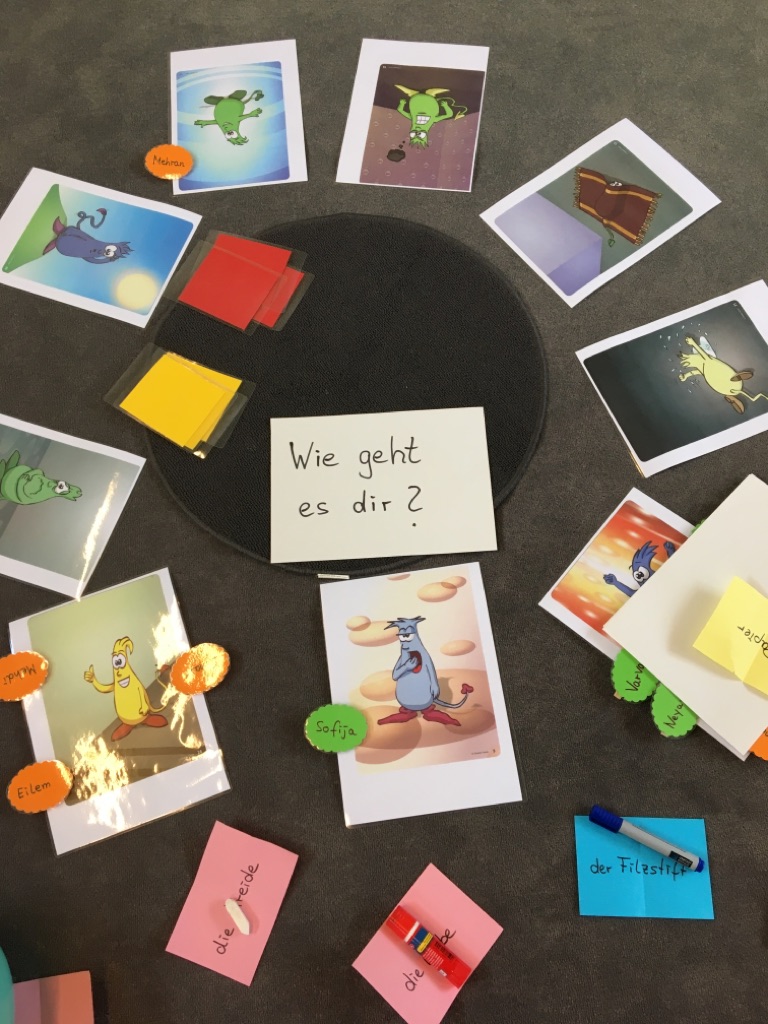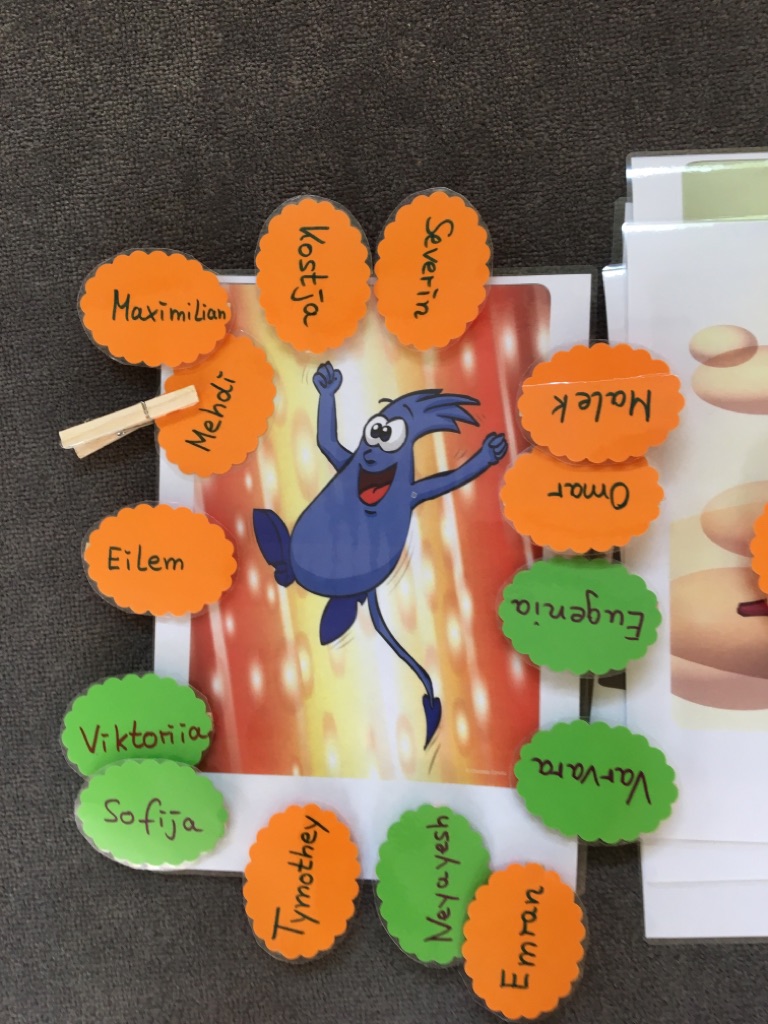The Gefühlsmonsters find their place at the Kappeln Family Center and help teach Ukrainian children the German language. We are touched – In such a difficult time for the children, they find a way to share their feelings and get to know a foreign language.
Author Doris Ambrosius writes the following in her article in “Schlei-Bote Kappeln” from July 2nd, 2022:
“How can children with different native languages explain how they feel? How can they learn German words of everyday life together quickly and easily? It takes child-friendly ideas, sophisticated organization and people who are happy to take care of it – like the team of Stella Michailidou Pavlou, Melina Baarth, Delia Baarth and Kerstin Frahm from the Kappeln Family Center.
Language improvements in two months
The project ,,Sprache spielend fördern durch gemeinsame Aktivitäten” of the DaZ-class of the Gorch-Fock-Schule in Ellenberg provided the opportunities and became a complete success. “The children not only had a lot of fun over the two-month runtime, we also noticed significant language improvements,” explains Stella Michailidou Pavlou, project manager and integration coordinator at the Kappeln Family Center.
The family center had applied for funding at the end of 2021, at the time for about 15 children. But since Putin’s war against Ukraine, the number has risen to 28 children at the cooperating Gorch-Fock-Schule. It was a great challenge to get them all under one roof,” says the coordinator. Some of the children from Afghanistan, Syria and Ukraine, aged between seven and eleven, already had good language skills, but most of them, especially the new ones, knew only a few words.
Creative and movement activities
In May and June, they were allowed to learn and be together in play on six dates in the early afternoon after school. Here’s what it looked like: After singing their catchy song, “Einfach spitze, dass du da bist,” the children explained without difficulty how they were doing. To do this, they put their name tag on the Gefühlsmonster that suited them. The hand puppet “Frau Quassel” delivered the vocabulary for the day. Everyday learning words were simply worked out by, among other things, packing a suitcase together. Various creative and movement activities brought the children together in a playful and informal way. Wooden and stone letters were used to write words and their own names. “All in all, it was really very successful,” says Kerstin Frahm. The time went by far too quickly, she adds, and at the end everyone went downtown together for ice cream. The project was financed for a limited period by state funds from the State Working Group of Independent Welfare Associations in Schleswig-Holstein via the Diakonisches Werk SH. Stella Michailidou Pavlou concludes: “Integration and language support is a dynamic process and one that the social environment and mechanisms should continue to support and sponsor.” She hopes to be able to implement more such projects in Kappeln and adds: “I sincerely thank all those involved for their effort and commitment.”

